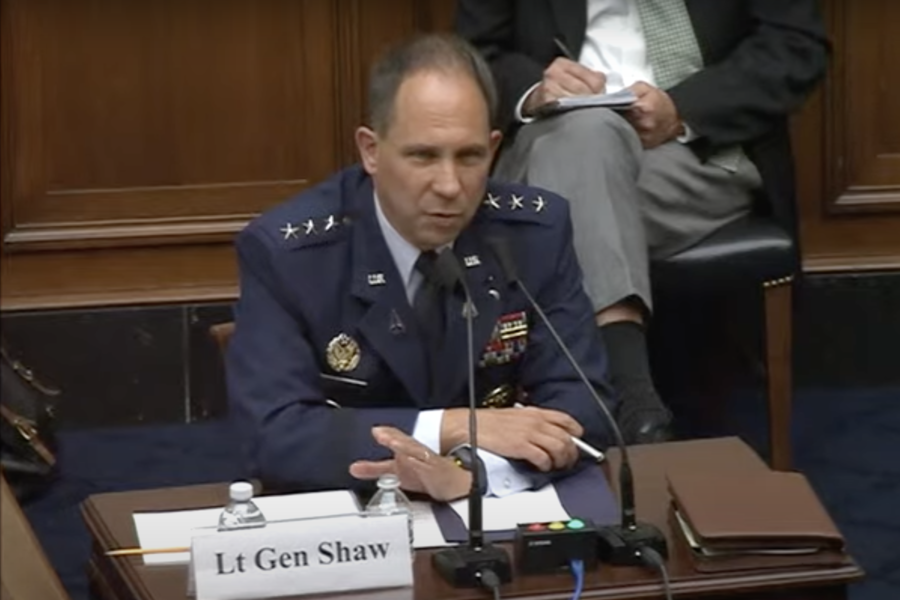Multilateralism and norms of behavior in the space domain should be prioritized in any future arms control negotiations, senior military leaders told Congress on June 15.
U.S. Northern Command boss Gen. Glen D. VanHerck and Deputy Commander for U.S. Space Command Lt. Gen. John Shaw both testified to a House Armed Services subcommittee as part of a hearing on the fiscal 2022 budget for missile defense programs, and both offered similar answers when asked by Rep. John Garamendi (D-Calif.) what they would want discussed first in any negotiation.
“First of all, I think that any arms control discussion these days should not be unilaterally with a single country with the two peer competitors that we have. It would be nice to have that discussion with both Russia and China,” VanHerck said. “I do believe there’s opportunities to discuss arms, including non-kinetic, such as cyber and space, where we can establish lanes in the road, where I’m very concerned about unintentional escalation in those areas.”
Shaw added, “The space domain, it’s not a global common. It’s an extra-global common, and so I would echo what General VanHerck said, that whenever you talk about something in the space domain, you have to involve all the parties that are participating in that, so it would have to be multilateral. I would think the first thing I would want to look at in the space domain is norms of responsible behavior within that domain, expectations of what is professional behavior versus non-professional behavior things, things that help us to avoid escalation in that domain that could lead to a crisis globally.”
Garamendi’s questioning comes the day before U.S. President Joe Biden is set to meet with Russian President Vladimir Putin in a highly-anticipated summit amid rising tensions between the two great powers. The issue of rules for behavior in space has been an area recently stressed by U.S. Chief of Space Operations Gen. John W. “Jay” Raymond as well.
Also on June 15, VanHerck voiced support for the Homeland Defense Radar-Hawaii (HDR-H), a long-planned missile defense sensor that went unfunded in the 2022 budget. At the same time, VanHerck said, the military would be able to defend Hawaii from threats regardless.
“I believe [HDR-H] gives us additional capability for an underlayer that would support the defense of Hawaii, specifically given additional capability and capacity,” VanHerck said. “But let’s be clear, at this moment in time, I’m comfortable with my ability to defend Hawaii. That doesn’t mean I don’t support the sensor, though.”
VanHerck’s focus on enhanced warning systems and sensors also came up when he was asked to elaborate on his statement last week to a Senate subcomittee that the 2022 budget “didn’t move the ball very far” in terms of resources for the Arctic region, an increasingly contested and strategically valuable area.
Referring to his unfunded priorities list, VanHerck mentioned “over-the-horizon radar capabilities, Arctic communications capabilities, as well as polar over-the-horizon” as areas where he’d like to see more resources. He also cited the need to build up infrastructure and support for Navy and Army forces.
